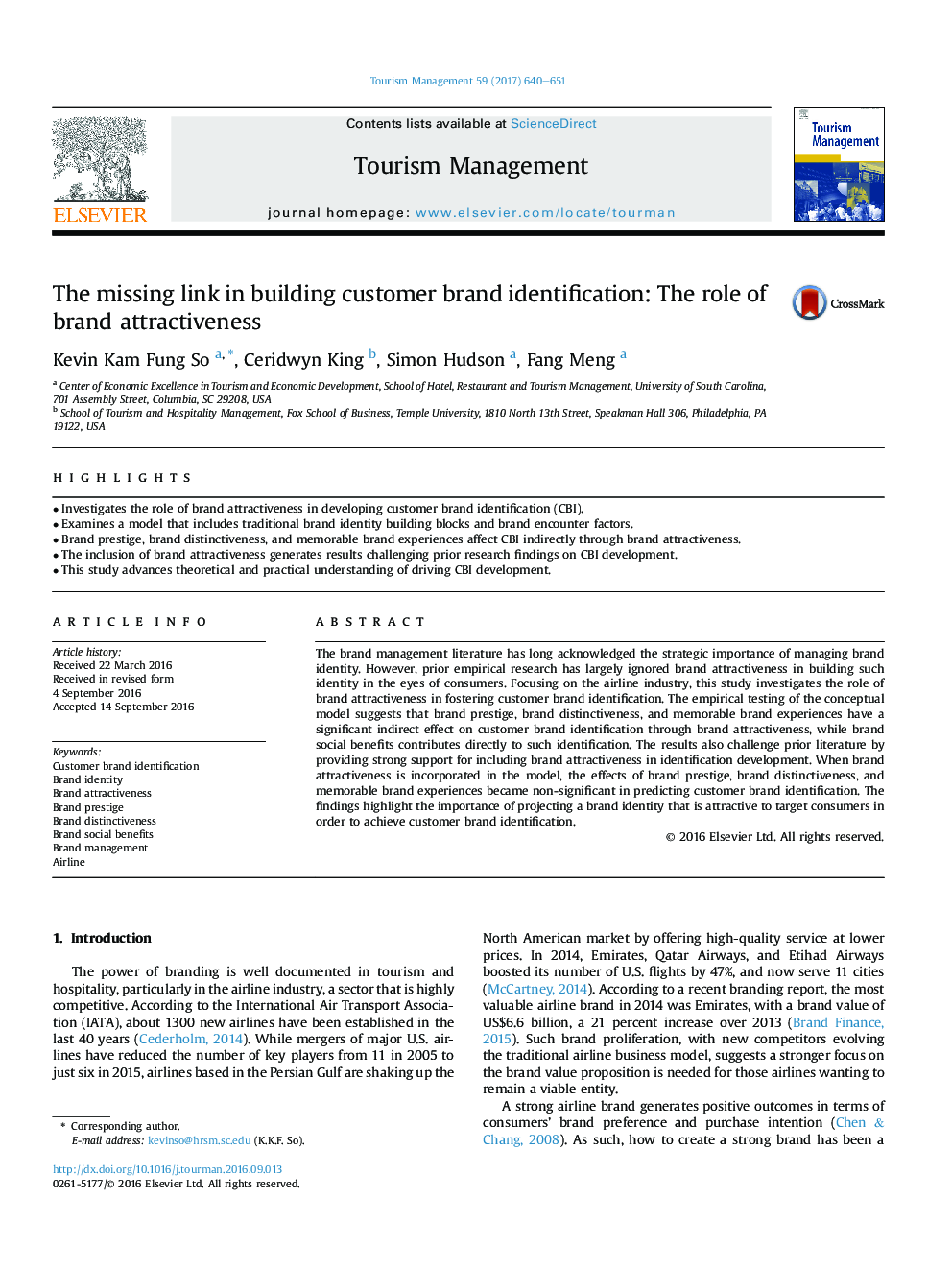| Article ID | Journal | Published Year | Pages | File Type |
|---|---|---|---|---|
| 7421269 | Tourism Management | 2017 | 12 Pages |
Abstract
The brand management literature has long acknowledged the strategic importance of managing brand identity. However, prior empirical research has largely ignored brand attractiveness in building such identity in the eyes of consumers. Focusing on the airline industry, this study investigates the role of brand attractiveness in fostering customer brand identification. The empirical testing of the conceptual model suggests that brand prestige, brand distinctiveness, and memorable brand experiences have a significant indirect effect on customer brand identification through brand attractiveness, while brand social benefits contributes directly to such identification. The results also challenge prior empirical findings by providing strong support for the need to include brand attractiveness in cultivating identification. When brand attractiveness is incorporated in the model, the effects of brand prestige, brand distinctiveness, and memorable brand experiences became non-significant in predicting customer brand identification. The findings highlight the importance of projecting a brand identity that is attractive to target consumers in order to achieve customer brand identification.
Related Topics
Social Sciences and Humanities
Business, Management and Accounting
Strategy and Management
Authors
Kevin Kam Fung So, Ceridwyn King, Simon Hudson, Fang Meng,
